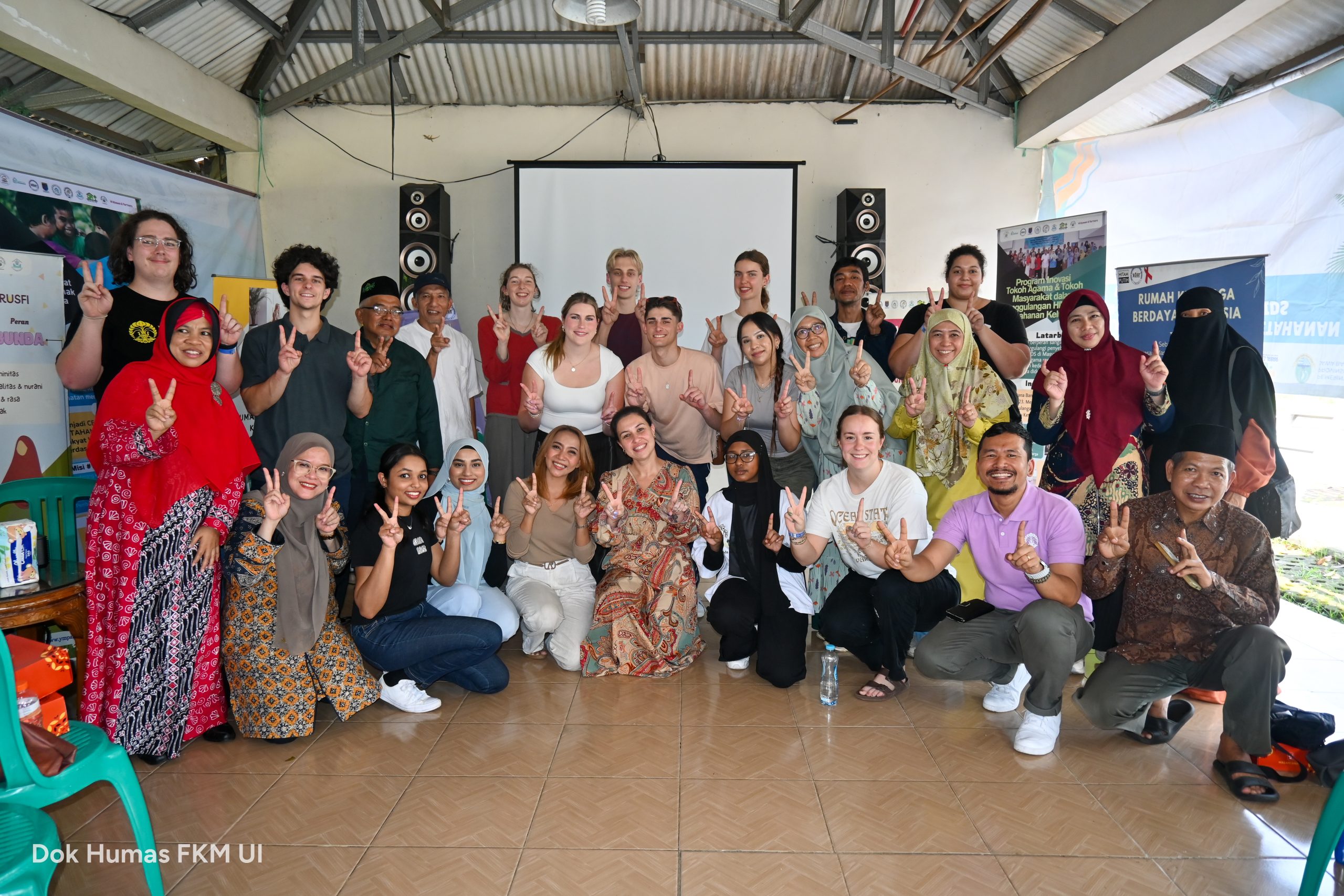FPH UI’s efforts to strengthen its international network and build a global reputation were once again realized through the implementation of the International Public Health & Social Work Study Trip Batch 2. This program not only served as a platform for academic and cultural exchange but also reinforced FPH UI’s position as a public health education institution that is open to global collaboration and responsive to cross-border health issues. The participation of 14 students from Queensland University of Technology (QUT), Australia, demonstrated FPH UI’s growing appeal as a credible and competent international academic partner.
The program was officially launched on June 30, 2025, with an Opening Ceremony held at the FPH UI campus and will run until July 13, 2025. In her opening remarks, Vice Dean for Education, Research, and Student Affairs at FPH UI, Dr. Ir. Asih Setiarini, M.Sc., emphasized that the program provides a comprehensive learning space that integrates theory and practice, while fostering cross-cultural collaboration in public health and social work.
Dr. Asih said, “The International Public Health & Social Work Study Trip is a unique and valuable opportunity for all participants to broaden their academic perspectives, deepen practical understanding, and build intercultural collaboration in the fields of public health and social work.”
The academic activities include seminars by experts from FPH UI, the Faculty of Medicine UI (FKUI), and the Indonesian Social Work Consortium, as well as Indonesian language classes at LBI UI to provide participants with basic communication skills for their field visits. Beyond the academic scope, participants will engage in field trips to various health and social institutions such as community health centers (puskesmas), integrated service posts (posyandu), waste management facilities, eldercare homes (panti werdha), the YMPAI shelter for people living with HIV (ODHIV), and UI Hospital. These visits offer direct insight into Indonesia’s health and social welfare systems, as well as the social challenges faced by local communities.
The program also offers rich cultural experiences through visits to Setu Babakan and Taman Mini Indonesia Indah (TMII), including art workshops such as Kecak dance and traditional Betawi music. At the end of the program, participants will present their observations on health challenges in Indonesia along with relevant recommendations.
In her speech, Dr. Asih encouraged participants to actively engage, build meaningful connections, and expand their professional networks to create a positive impact on global health and social justice issues.
She concluded, “I extend my sincere appreciation to all parties involved in organizing this program. Your dedication has ensured the success of this initiative. We hope this program becomes a transformative experience that inspires new perspectives, lasting collaborations, and a strong commitment to advancing public health and social welfare.”
Through this program, FPH UI not only contributes to the capacity-building of future global health professionals but also strengthens Indonesia’s role in academic diplomacy on the international stage.
(wrk)

